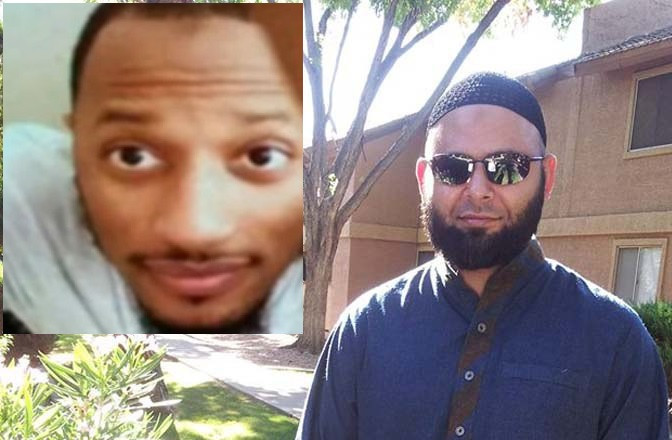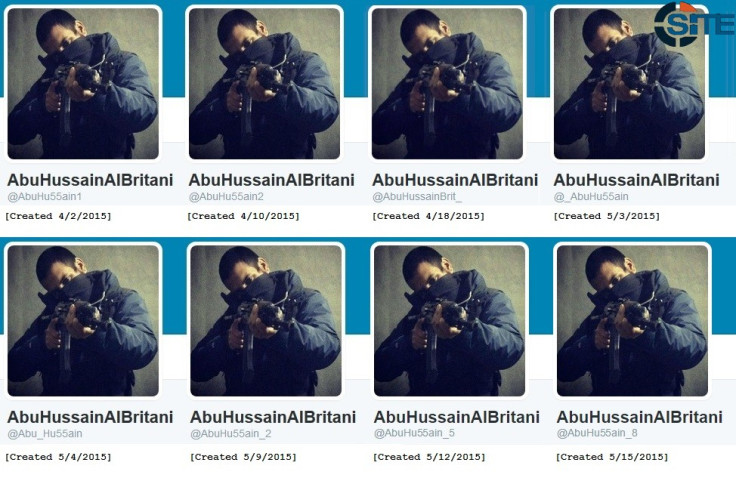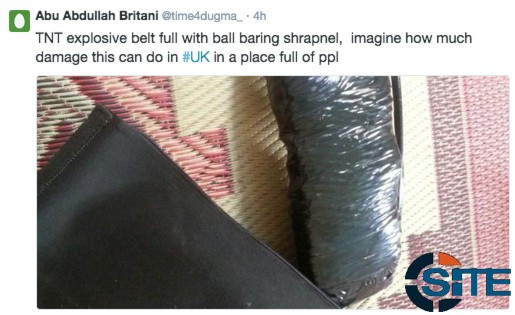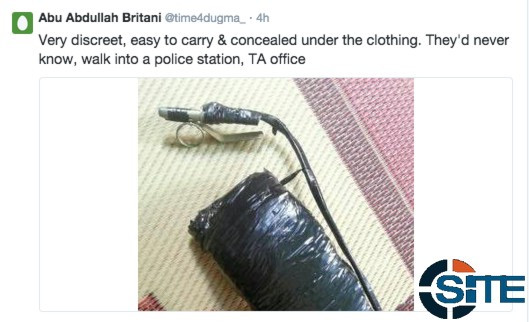British Isis jihadists openly plotting #Londonattack and still Twitter won't stop them

A few days ago, I watched Sen. Ron Johnson, chair of the Senate Homeland Security and Governmental Affairs Committee, in an interview on CNN, wherein he discussed the Islamic State (Isis) threat in the wake of the Texas shooting.
Though he made some very astute statements on the symbolic dimensions of the war against IS, I was amazed at how quickly he breezed by a crucial issue. Amid Johnson's calls to "defeat IS in Iraq and Syria," he devoted only eight words to Twitter's role in the matter: "Now Twitter's starting to shut these things down."
The "things" Johnson was referring to in that bewilderingly short fashion were Twitter accounts of IS fighters and recruiters. This statement sadly indicated once again that many powerful officials like Johnson have absolutely no idea what's going on, on Twitter, how little has been done by Twitter, how suspending accounts is absolutely useless, and above all, how they are not trying to educate themselves for the sake of our national security.
I hope Sen. Johnson is reading this article, because I have news for him: Twitter has been "starting to shut these things down" since at least 2013, targeting jihadi groups such as al-Shabaab and other al-Qaeda (AQ) affiliates. And, since at least mid-2014, Twitter has been engaging in both sporadic and concerted suspensions of IS fighters and recruiters. The more sweeping actions are usually taken after major IS-related news events or media releases, such as an IS beading video, after which IS accounts tweet barrages of threats and gruesome images.
If Twitter has been doing this for over a year in regard to IS, why then are we still hearing with such assurance that "Twitter's starting to shut these things down." If that was the case, wouldn't all these accounts be far less prevalent on Twitter today? The sad answer is that we're still hearing this same statement because the measures taken by Twitter, until now, have been absolutely useless.
It's time to hold Twitter accountable.
Let's take a look at what has happened on Twitter since the Texas shooting — you know, since Twitter started "to shut these things down."
The shooting in Texas served as a prime case study of the solid link between Twitter and the contributory components of an attack, all of which were laid out in plain sight: incitement, recruitment, planning, execution, and finally, the claim for responsibility. Indeed, following the 3 May attack, hundreds of articles were written — many citing SITE's detailed report on the matter.
Notably, most of these articles reported on the important role of British IS fighter and recruiter Junaid Hussain, known by his Twitter alias, "Abu Hussain al-Britani."
Hussain, one of most prominent IS fighters on Twitter, who regularly incites support for lone wolf attacks in the UK and the West, suggested that he may have had prior knowledge of the attack and was the first to mention it on Twitter. Twitter took down his account hours after the claim, and also suspended the account of Elton Simpson and many of Hussain's associates who were inciting for attacks.
However, shortly after, on May 9, amidst all the discussion about his important role in planning the shooting, Hussain and his wife, known as Umm Hussain, returned to Twitter at their convenience and promised for more attacks.

Hussain was anything but intimidated by the new spotlight on him. Now back in business, he began promising more attacks, such as one tweet made that same day:

Two days later, Twitter shut down his new account, so he effortlessly made a new one. On 12 May he created a new account, and was sure to make fun of Twitter for its pointless suspension method:

Again, without wasting any time, Hussain continued posting tweets urging more lone wolf attacks, posting a new tweet with the message "incite and inspire" before further messages in support of jihad.
Hussain subsequently went on to create another account, further proving that this post-hoc suspension procedure by Twitter is far from effective. Accounts of prominent recruiters often return in a matter of hours under new handles.
Here are eight more accounts created by Hussain since the beginning of April:

Suspending accounts is about as effective as a two-minute time-out, and the sad fact is that Twitter knows that. As I mentioned, following the Texas shooting, Twitter suspended many of the accounts that were in contact with Simpson and others that celebrated it. Most—if not all—of the IS fighters in contact with Simpson returned to Twitter, inciting for violence and offering targets for new lone wolf attacks.
Suspending accounts is about as effective as a two-minute time-out, and the sad fact is that Twitter knows that.
The unseen army
Saying that Hussain is just the tip of the iceberg would be an understatement. Since the Texas attack, Twitter has been flooded with threats and calls for attack from emboldened IS fighters and supporters.
For example, another British IS fighter in Syria/Iraq promoted by Simpson is Abu Rahin Aziz, known on Twitter as "Abu Abdullah Britani." Like Hussain, Aziz constantly calls for attacks, his targets including various high-profile political figures in the UK. His account was shut down during the suspension wave after the TX shooting, but it immediately came back online.
With the new account, Aziz tweeted a picture of what was presented as an explosive belt on May 11, along with the message:

Abu Abdullah then followed up with a series of tweets with more pictures of bombs and suggested locations to target:

It gets even scarier. To the latter tweet, an account under the name "J Muslim" replied with two tweets of pictures claiming that he/she also had a similar device, using the hashtag, "#londonattack." The user commented on "all the ball bearings" and stated that she/he intended to "use" it "very soon.
After Abu Abdullah tweeted these pictures and messages, he then sent a message claiming that Britain, the USA, Australia and France are all "legitimate targets", warning "go to war with us then expect attackers on your soil."
Abu Abdullah also followed up with a photo collage of his previously tweeted explosive device and various locations in London, including Big Ben and Tower Bridge. The picture was accompanied by the message:
"Let the reality hit home, the taste of chaos, carnage & bloodshed.#foreignpolicy #QaribanQariba"

Other examples have included false claims of bombs planted on airplanes (reportedly resulting in airlines being forced to ground their planes) and calls for lone wolves to "behead [Westerners] like cattle."
Many of these threats and calls were done by the same IS members who have been inciting and recruiting on Twitter for a long time. So, to harp back once more to the idea that "Twitter's starting to shut these things down," it appears to be just the opposite, and that should worry us.
As I have commented in the past, the rantings of lunatics on the internet have often proven to have real-world consequences. For all of these messages to still be made after the eye-opening Texas attack, it is no longer acceptable for decision-makers — let alone anyone else — to perpetuate the notion that Twitter is taking care of its problem. And to that point, journalists, officials, elected representatives, and everyone else for that matter need to expand their criticisms beyond the go-to question, "What is the government doing about this?"
I was certain that the Texas shooting would serve as a wakeup call for Twitter, and all those that its social media platform affects, to finally address its accountability and how to fix the problem, but I'm starting to think otherwise. We are long overdue an explanation from those running Twitter — a platform with over a hundred million users and the power to facilitate massive social action — about what they are doing to clear out the criminals they have been hosting.
Rita Katz is executive director of the SITE intelligence group (www.siteintelgroup.com). She has been monitoring terrorist activity and Jihad for more than a decade.
You can find her on Twitter @rita_katz.
© Copyright IBTimes 2025. All rights reserved.




















